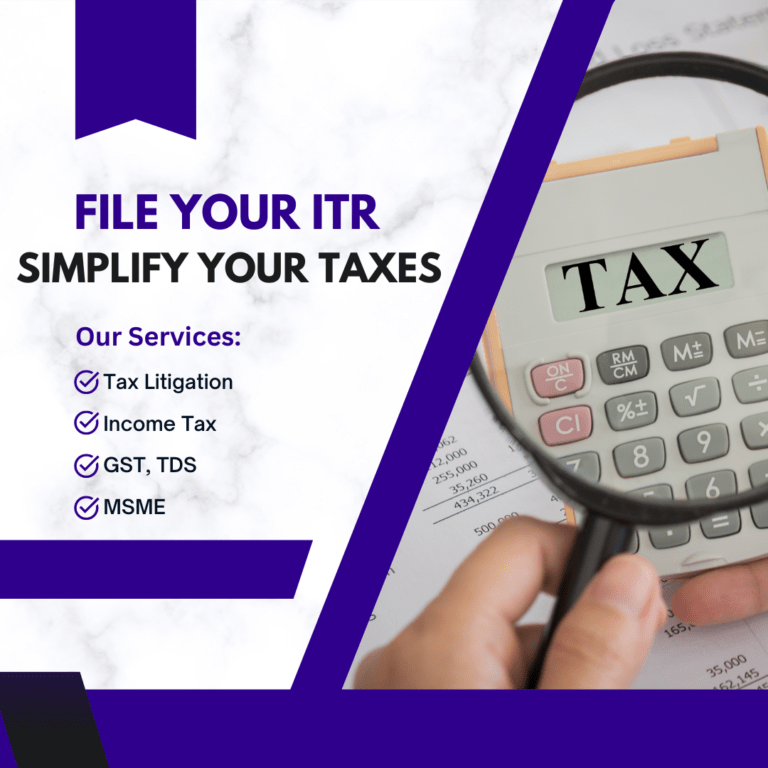
For those with salaries, pensions, family pensions, and interest income, the Income Tax Return Form for salaried individuals is the ITR-1 Form, sometimes known as Sahaj.
ITR-1 (SUGAM) is a simplified income tax return form designed for resident individuals whose total income does not exceed Rs. 50 lakhs. It caters to individuals who have an agricultural income of up to Rs. 5000 and own only one house property. This form is ideal for salaried employees, pensioners, and other individuals with straightforward financial situations, making the tax filing process easier and more efficient.
In short, Those who live in India and make up to Rs 50 lakh a year are qualified. A person who makes money via a job, a house, or other sources may file an ITR-1.
Income from speculative and capital gains: A person is ineligible to file their income tax return using the ITR-1 form if they have any capital gains income, such as profit from the sale of mutual funds, gold, stock shares, real estate, and other comparable assets.
Answer- In ITR 1 form, certain types of income are excluded, such as:
(a) Income from business and profession,
(b) Capital gains,
(c) Income from more than one house property,
(d) Income from other sources, including winnings from lottery, owning and maintaining racehorses, income taxed at special rates under sections 115BBDA or 115BBE,
(e) Income to be apportioned according to section 5A.
This ensures that the form is suitable for individuals with simpler financial situations, focusing on salary income, interest income, and other basic sources.
2. Is it ever required to determine the character of employment when contemplating a claim a return?
Answer- Yes, When filing your return, it’s required to specify your employment status from the following options:Answer- Yes, When filing your return, it’s required to specify your employment status from the following options:
Central Government Employee
State Government Employee
Civil servant/ Government servant or Central/ State government employee/…Employee of Central Public Sector Undertaking or State Public Sector Undertakings.
This document contains the information regarding pensioner (Central / State Govt./Public Sector Undertaking/ Other).
Employee in the private sector organization
If you are collecting family pension income it is not applicable.
It also puts forward the issue of correct classification of income sources and simplifies the work of preparing taxes.
3. What are the documents necessary including annexure for ITR-1?
Answer – To do your tax efiling without any difficulties, the first thing you must download is the AIS (Annual Information Statement) and along with maintaining the photocopies of the documents, you must also keep Form 16 and house rent receipts if you are not living in the rented house and the receipt of investment payment/ premium if you are paying either investment or premium. ITRs are annexure-less forms, therefore there are no requirements of any documents, including proof of investments, TDS certificates, etc., when filing it, whether manually or in electronic format.
However, it is advisable to have these contracts available just in case they are needed this for example when conducting an analysis or when faced with scrutinized from the tax offices. Namely being organized and having essential documents accessible assists you in being ready for any occasions dealing with the tax authorities and contributes to a seamless procedure of tax filing.
4. Is it mandatory to link Aadhaar with PAN for filing ITR?
Answer- Linking your Aadhaar and PAN is crucial for various financial transactions and accessing government portals. While you can still file your Income Tax Return (ITR) even if your PAN is not linked with Aadhaar, you’ll have limited access to the portal. For a seamless experience and to fully leverage the benefits of online services, it’s highly recommended to link your PAN with Aadhaar. This ensures smoother access to government platforms and facilitates hassle-free tax filing and other financial activities.
5. How can I prevent difficulties while filing my ITR?
Answer- To ensure a smooth tax filing experience and to avoid any issues with your return or refund, it’s important to follow these steps:
By following these guidelines, you can streamline your tax filing process and ensure timely compliance with tax regulations.
6. What happens if I file my Income Tax Return after the due date under Section 139(1)?
Answer- If you happen to miss the deadline for filing your Income Tax Return under section 139(1), don’t worry—you can still file it afterwards. However, keep in mind that there may be consequences for filing late. You could be subject to a late filing fee of up to ₹5000/-, in addition to any interest on tax liability that may have accrued.
It’s important to file your return as soon as possible to avoid further penalties and to stay compliant with tax regulations. If you do miss the deadline, it’s best to file your return at the earliest opportunity to minimize any additional costs or consequences.
To Receive or Inquire about the NGO Taxation services check out our website: https://ngopilot.in/
DISCLAIMER: The information provided in this ITR-1 form is intended for general informational purposes only and is based on the latest guidelines and regulations. While we strive to ensure the accuracy and completeness of the information, it may not reflect the most current legal or regulatory changes. Taxpayers are advised to consult with a qualified tax professional or you may contact to our tax advisor team through call +91-9871990888 or info@semantictaxgen.in. the appropriate government authority to verify the accuracy of the information and to obtain advice on their specific tax situations.
© 2013-25 Semantic Taxgen Pvt Ltd - All Rights Reserved